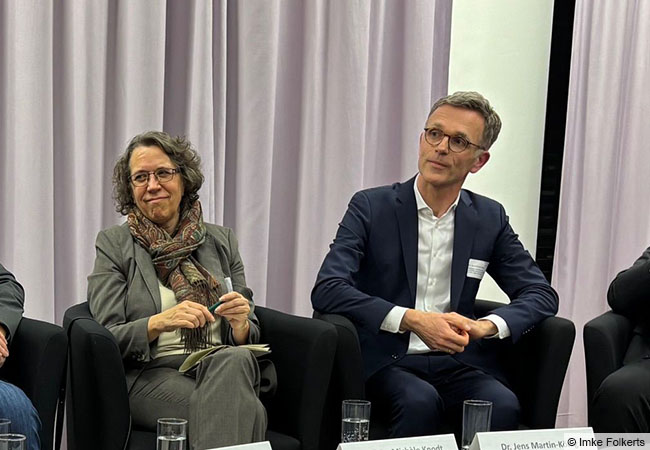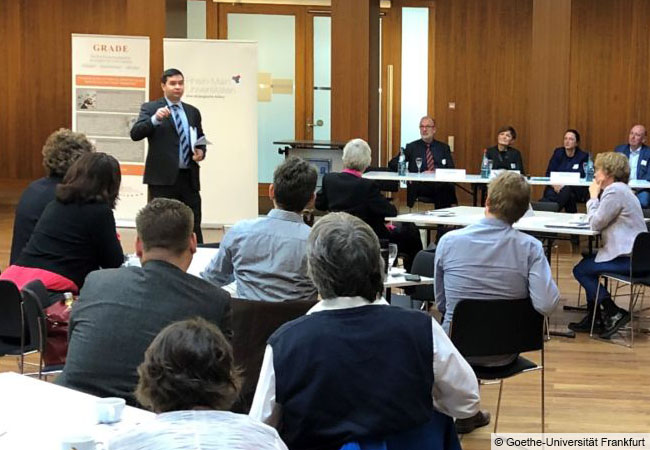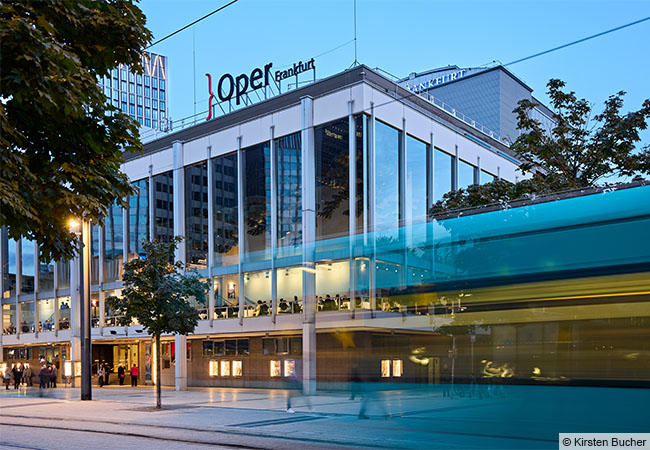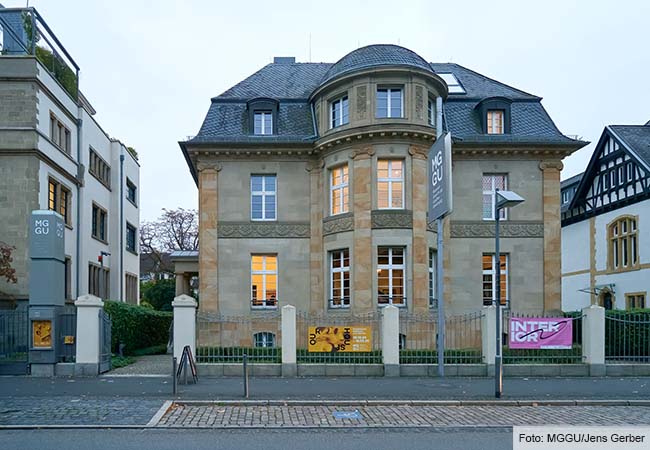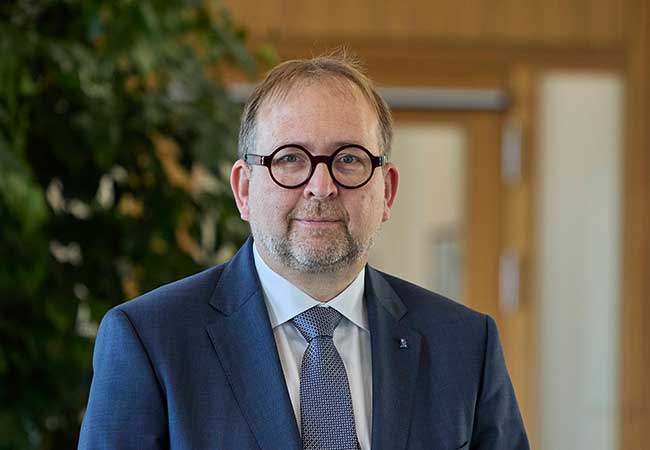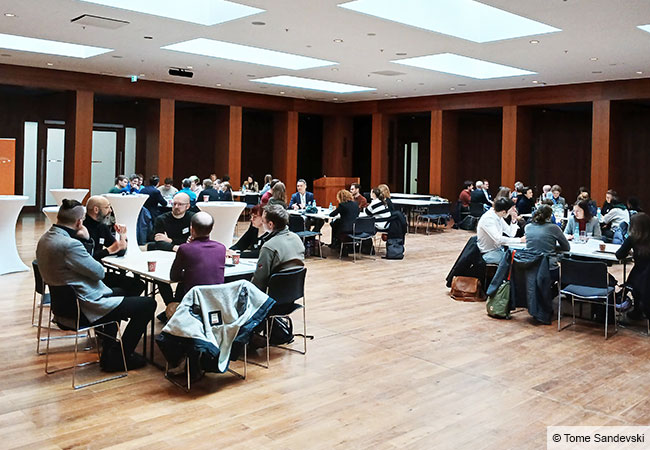Israel’s consul general for southern Germany, Talya Lador-Fresher, answers students‘ questions at Goethe University Frankfurt
Hamas’ terrorist attacks and Israel’s military actions in the Gaza Strip also concern many members of Goethe University, some of whom have family or friends in the region. At the same time, the conflict, its history and its impact are topics researched and taught at the university. In this context, Prof. Christian Wiese, director of the Buber-Rosenzweig Institute for Modern and Contemporary Jewish Intellectual and Cultural History and professor at the Faculty of Protestant Theology, invited Talya Lador-Fresher, Israel’s consul general in Munich, to a discussion with students.
Prof. Wiese had already invited Talya Lador-Fresher to Goethe University at the beginning of June. However, the municipal authorities had learnt of a protest against the visit, giving rise to a dynamic situation, in which the university’s management no longer saw the safety of either the participating students or the consul general as guaranteed. In consultation with the security authorities, Goethe University’s management decided to postpone the event to a later date, with the decision eventually falling on July 8.
“It is our job as researchers and teachers to provide spaces for open discourse. Especially in my capacities as director of the Buber-Rosenzweig Institute and the German-Israeli Frankfurt-Tel Aviv Center for the Study of Religious and Interreligious Dynamics, I very much regret that this is proving so difficult to do in the context of the Middle East conflict. The names Martin Buber and Franz Rosenzweig, two individuals who are closely associated with Frankfurt and its university, stand for dialog across the boundaries of religious communities and across political lines of conflict,” Prof. Wiese said, adding that, “I am all the more pleased that we have succeeded in making the meeting and the discussion possible.”
“It was a great disappointment that our first meeting had to be postponed, although I can understand both Goethe University’s concern for the students as well as the related security concerns. At the same time, it is frightening that terror has led to the event’s postponement. Terror is not just physical, it is also psychological – including, for example, when you cannot freely express your opinion, as in this case,” explained Lador-Fresher. “Conversations should consist of a dialog in which all participants can voice their opinion in a safe environment and, above all, listen to each other. That was precisely the intention of my offer to enter into such discussions: to share experiences and assessments as an Israeli diplomat, and enter into an exchange with the students present about their experiences and thoughts. I am convinced that the terrible events of October 7 must be anchored in the consciousness of all students and all people in Germany. Anyone who forgets, suppresses or negates this horrific massacre is turning the perpetrator into the victim.” Around 30 students from various disciplines took part in the discussion, to which neither guests nor the press were invited in order to foster open discourse.


